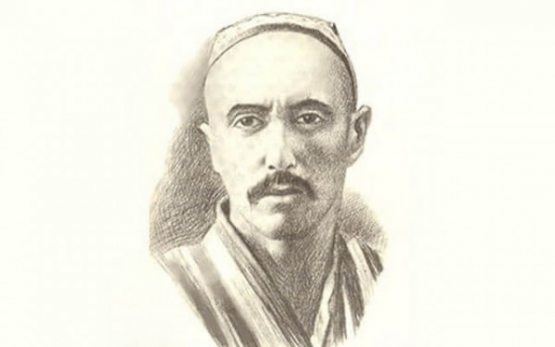
HAMZA HAKIMZADEH NIYAZI
(1889-1929)
Hamza is an active enlightened poet, teacher, public figure, from the largest manifestations of Uzbek culture of the late 19th century to the beginning of the 20th century. He is an artist who has made tremendous research and discoveries in bringing poetry closer to life and the people, making modern prose a decision in Uzbek literature, especially in the chapter on drama, comedy, tragicomedy creation, and in the development of theatrical art. Hamza is also widely known as a composer, director, journalist, educator and author of textbooks.
From 1905 he began writing poems under the pseudonym” Nihon”, and as early as 25 he formed” Devon”. An important place in them is the love of Eastern poetry, the call to enlightenment, along with religious thematic. Hamza began his pedagogical career by opening schools in Tashkent in the Qashqar neighborhood in 1910, in Kokand in 1911, in Marghilan in 1914, and again in Kokand, teaching children.
Not only did Hamza teach in these schools, but he also wrote textbooks such as “light literature”, “the reading book”, “The Book of recitation” (1914-1915). He founded another such jadid school in the second city, when he was persecuted by opening the usuli savtiya school in one city. Sought to educate more poor children and the poor. Hamza’s achievement in the work of teaching and teaching was such that the method of Islam was able to connect with savtia-to actively help the Korans and Khadis, calling the people to science, innovation.
Hamza’s dramatic works such as” the National Poetry complex for national songs “(1915-1917),” toxic life “(1916),” a plaque from the mysteries of Paranji or the work of the yallists “(1927),” the work of Maysara ” (1926) are a new phenomenon in Uzbek literature.
He followed the jadids and became one of the progressive representatives of jadidism. When the Jadid father Ismail Gaspirali died, Hamza wrote Marcia and wrote,” DoD qil period falaqdin, batdi khurshidi Jahan”. Munavwar called qori the “supreme master”, the” spiritual father”.
Hamza did not limit himself to writing textbooks, opening a new style school, and promoting jadidism by issuing magazines. Hamza worked in the school-Māori field during his time, forming dram troupes. He could not work hard somewhere because of his truthfulness, truthfulness and intolerance. In Bukhara, Tashkent, Fergana, Khojaly, first in his village – moved around the land. On March 18, 1929, a tragic death at Shohimardon took him from life.
Hamza’s educational work had an important impact on the development of General spiritual changes, progressive pedagogical and socio-philosophical thoughts, the jadidist movement of the beginning of the 20th century in Turkestan. His people, not tired on the way to the well-being, spiritual development of his homeland, carried out incredibly useful work.
